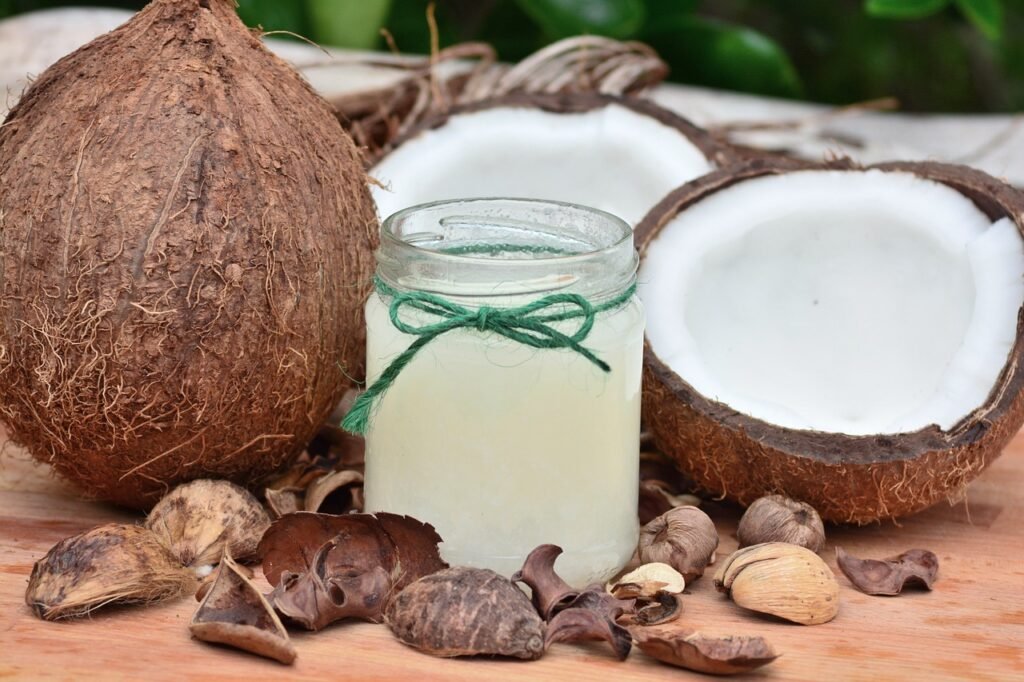Choosing the right oils for our cooking needs is essential for maintaining a healthy lifestyle. The oils we use can have a significant impact on our overall health and well-being. In this article, we will explore the 11 best and worst oils for our health, emphasizing the importance of selecting high-quality oils and discussing the various health benefits associated with different types of cooking oils.
Key Takeaways:
- Selecting quality oils is crucial for our overall health.
- Understanding the health benefits of different oils helps optimize our cooking practices.
- The wrong choice of oils can have adverse effects on our heart health and weight.
- Using oils properly while cooking can enhance their benefits and avoid negative health impacts.
- Incorporating healthy cooking oils into our meals can lead to improved heart health, weight loss, and overall wellness.
Oils for Heart Health, Weight Loss, and Cooking
When it comes to our overall health and well-being, choosing the right cooking oils plays a crucial role. Certain oils can have a negative impact on heart health and weight loss goals, while others offer numerous benefits. Additionally, knowing how to properly use cooking oils can optimize their advantages and minimize any potential risks or negative effects.

The Worst Oils for Heart Health
When it comes to heart health, it is important to avoid oils that are high in saturated fats and trans fats. These types of fats can increase the levels of bad cholesterol in our bodies, increasing the risk of heart disease and other cardiovascular problems. The oils to avoid for heart health include:
- Palm oil
- Coconut oil
- Cottonseed oil
Oils to Avoid for Weight Loss
If you’re looking to shed some pounds, it is best to stay away from oils that are high in calories and have a high fat content. These oils can hinder your weight loss efforts and add unnecessary calories to your meals. The oils to avoid for weight loss include:
- Corn oil
- Soybean oil
- Vegetable oil
The Best Oils for Frying
While frying is generally not considered the healthiest cooking method, if you do choose to fry foods, it is important to use oils with a higher smoke point. Oils with a higher smoke point can withstand higher temperatures without breaking down and producing harmful compounds. The best oils for frying include:
- Avocado oil
- Canola oil
- Extra virgin olive oil
- Peanut oil
How to Use Cooking Oils Properly
To optimize the benefits of cooking oils and avoid any negative health effects, it is important to use them properly. Here are some tips:
- Choose oils that are appropriate for the cooking method you are using. For example, use oils with a high smoke point for frying.
- Store oils appropriately to keep them from going malodorous. Keep them in a cool, dull spot away from intensity and light.
- Use oils in moderation. While they are a necessary part of cooking, using too much oil can contribute to excess calories and unhealthy fat intake.
By understanding the worst oils for heart health, oils to avoid for weight loss, best oils for frying, and how to use cooking oils properly, you can make informed choices that promote your overall health and well-being. Incorporate the right cooking oils into your meals to enjoy their benefits while minimizing any potential risks.

Conclusion
Choosing the right cooking oils is crucial for our overall health and well-being. By selecting healthy cooking oils and understanding the health benefits they offer, we can optimize our diet and cooking practices.
Using high-quality oils in our meals can have a positive impact on our heart health. Incorporating oils such as olive oil, avocado oil, and coconut oil can help lower bad cholesterol levels and reduce the risk of heart disease.
Furthermore, using the right cooking oils can support weight loss efforts. Oils like grapeseed oil and walnut oil contain essential omega-3 fatty acids that can aid in weight management and promote a healthy metabolism.
Incorporating healthy cooking oils into our daily meals not only enhances the flavor of our dishes but also brings numerous health benefits. So, let’s make informed choices when it comes to cooking oils and enjoy the positive impact they can have on our overall wellness.
FAQ
What are the 11 best and worst oils for our health?
The 11 best oils for our health include olive oil, avocado oil, coconut oil, almond oil, walnut oil, flaxseed oil, sesame oil, grapeseed oil, canola oil, peanut oil, and sunflower oil. The worst oils for our health include hydrogenated oils, palm oil, soybean oil, corn oil, cottonseed oil, and vegetable oil.
Why is it important to choose quality oils for cooking?
Choosing quality oils for cooking is important because they provide essential nutrients and fats that are beneficial for our health. High-quality oils, such as extra virgin olive oil and avocado oil, contain antioxidants and can help support heart health, reduce inflammation, and promote overall well-being.
What are the health benefits associated with different cooking oils?
Different cooking oils offer various health benefits. Olive oil is known for its heart-healthy properties, while coconut oil is praised for its antibacterial and antifungal properties. Walnut oil is rich in omega-3 fatty acids, which support brain health, and canola oil is a good source of omega-6 fatty acids, which help reduce inflammation.
Which oils should be avoided for heart health?
Oils that should be avoided for heart health include hydrogenated oils, palm oil, and partially hydrogenated oils. These oils contain high levels of unhealthy trans fats, which can increase the risk of heart disease and other cardiovascular problems.
What are the best oils for frying?
The best oils for frying are those with high smoke points, such as peanut oil, sunflower oil, and avocado oil. These oils can withstand high heat without breaking down or producing harmful compounds, making them suitable for deep frying and stir-frying.
How should cooking oils be used properly?
Cooking oils should be used properly by considering their smoke points and the type of cooking method being used. Oils with low smoke points, such as flaxseed oil and walnut oil, are best used for salad dressings or drizzling over cooked dishes. High smoke point oils, like canola oil and grapeseed oil, are better suited for frying and sautéing.
Which oils should be avoided for weight loss?
Oils that should be avoided for weight loss include hydrogenated oils, vegetable oil, and corn oil. These oils are high in unhealthy fats and calories, which can contribute to weight gain when consumed in excess.


